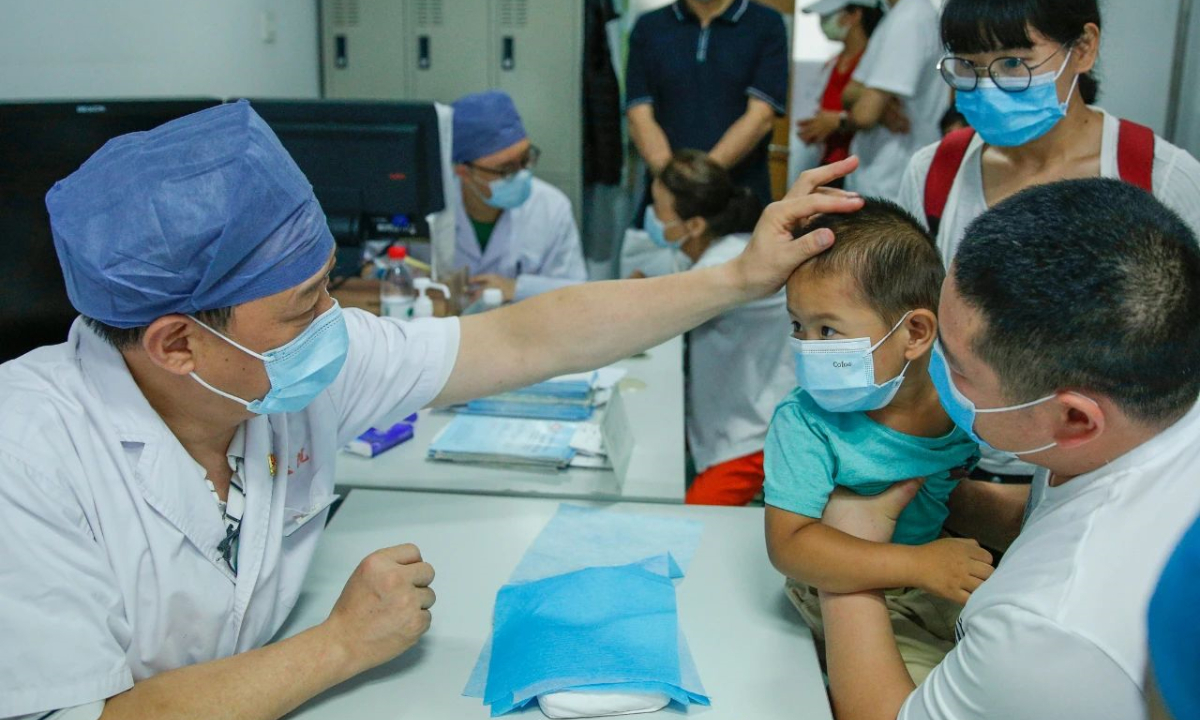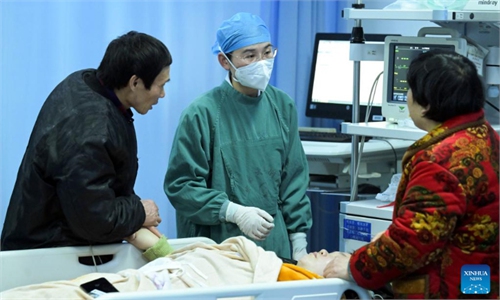China's health insurance reform to increase reimbursement level, expand usage of personal accounts to family members: official

Photo:Xinhua
The ongoing health insurance reform will not change the attribution of personal accounts, while offering more benefits to insured people such as supporting the reimbursement of general outpatient bills, an official of China's National Healthcare Security Administration (NHSA) said on Saturday.
Analysts noted that the reform doesn't mean any curtailment of benefits for insured people, which will utilize the funds from personal accounts more efficiently, especially for elderly who normally incur higher medical expenses.
Responding to some public concerns regarding the reduced amount deposited each month into personal accounts, the official said that the reform is intended to adjust the contribution from employers to personal accounts as a "replacement" to support reimbursement of general outpatient bills.
The reform will provide outpatient reimbursement for more areas, while increasing the reimbursement levels for areas already covered.
The attribution of the personal accounts will remain unchanged and payments made by employees will still flow into each holder's personal accounts, while retirees do not need to pay for personal accounts.
In terms of changes for employees, funds deposited by employers into personal accounts will be directly paid to the pooled fund for outpatient reimbursement instead of placed in personal accounts. The amount of deposits into retirees' accounts will be adjusted based on the changes of standards.
The nation's health insurance system includes mandatory personal accounts with contributions from both employees and employers that mainly pay for ordinary outpatient services. It also consists of a pooled fund contributed by employers which is used to reimburse hospitalization bills, outpatient bills for serious illnesses, and expenses for some chronic diseases.
The official said the reform involves the adjustment of benefits, and many participants will have different degrees of reduction in the funds allocated to their personal accounts, adding that responsible authorities are stepping up efforts to promote policy convergence before and after the reform.
The new outpatient reimbursement arrangement will enhance the benefits for insured people by better utilizing the fund rather than cutting benefits, Wang Chaoqun, associate professor in the Department of Labor and Social Security at Central China Normal University, told the Global Times on Saturday.
Wang noted that many elderly people have a higher demand for outpatient services, but the expenses can't be covered by the fund from personal accounts. Meanwhile, funds may remain idle in the accounts of people who have less of a need for immediate medical treatment.
The reform will elevate the entire operational efficiency of the health insurance system, Wang said.
The reform raises the minimum reimbursement percentage for outpatient medical bills to 50 percent, while mandating efforts to further tip the scales of policy in favor of retired people, according to the Xinhua News Agency.
The report noted that retired people in Hohhot, North China's Inner Mongolia Autonomous Region, can have up to 6,000 yuan ($870) of their outpatient bills reimbursed, which is 2,000 yuan more than the limit they used to enjoy. The city added 5 percent to the standard reimbursement ratio of outpatient bills for retired people while raising the upper limit for the collective fund to cover their outpatient bills.
In addition to supporting the reimbursement of general outpatient bills, the reform will further utilize medical resources, targeting difficulties in getting hospital treatment and expanding the usage of personal accounts to family members.
In 2022, the outpatient reimbursement system covered 108.6 billion yuan for insured people, according to NHSA.
Since 2023, designated medical institutions across the country have achieved a coordinated settlement of 441 million general outpatient visits, with an average daily settlement of over 7.8 million visits and a settlement amount of 46.24 billion yuan.

